Problem-Solving Skills Normal Building Vocabulary Worksheets for Ages 3-6
5 filtered results
-
From - To
Our "Problem-Solving Skills Normal Building Vocabulary Worksheets for Ages 3-6" are crafted to spark young minds! These engaging worksheets help children enhance their vocabulary while honing their critical thinking and problem-solving abilities. Designed specifically for preschool and kindergarten students, these resources incorporate fun and interactive activities that turn learning into an adventure. Each worksheet challenges kids to think creatively, recognize patterns, and build a robust vocabulary, providing a foundation for future academic success. Foster your child’s confidence and cognitive development with our expertly designed, age-appropriate educational resources. Unleash their potential today!
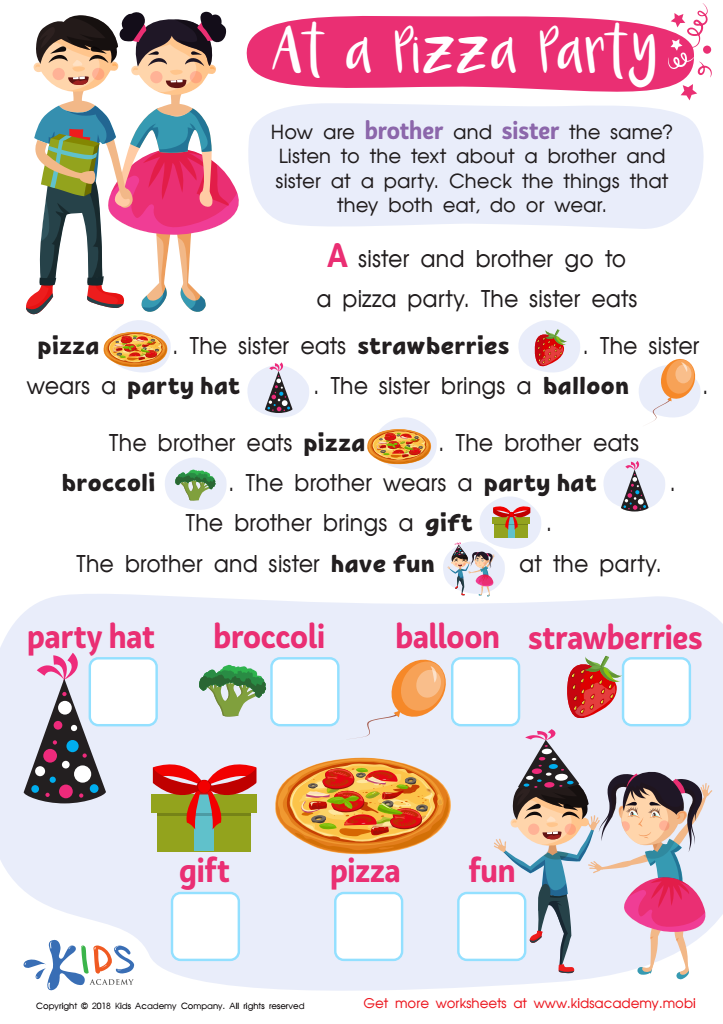

At a Pizza Party Worksheet
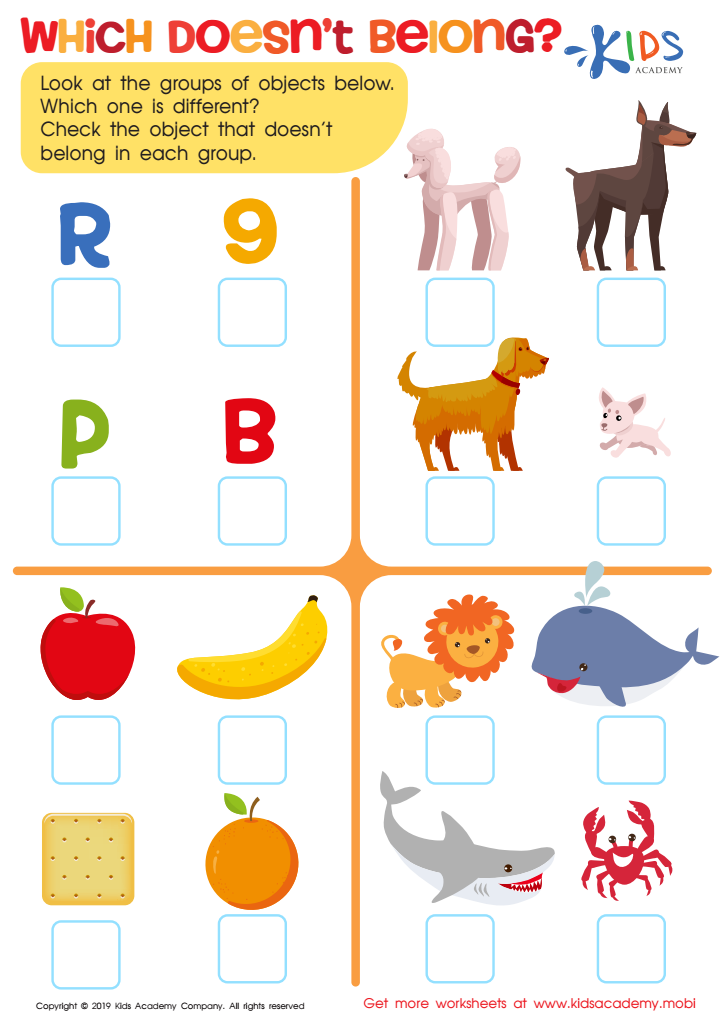

Which Doesn't Belong? Worksheet
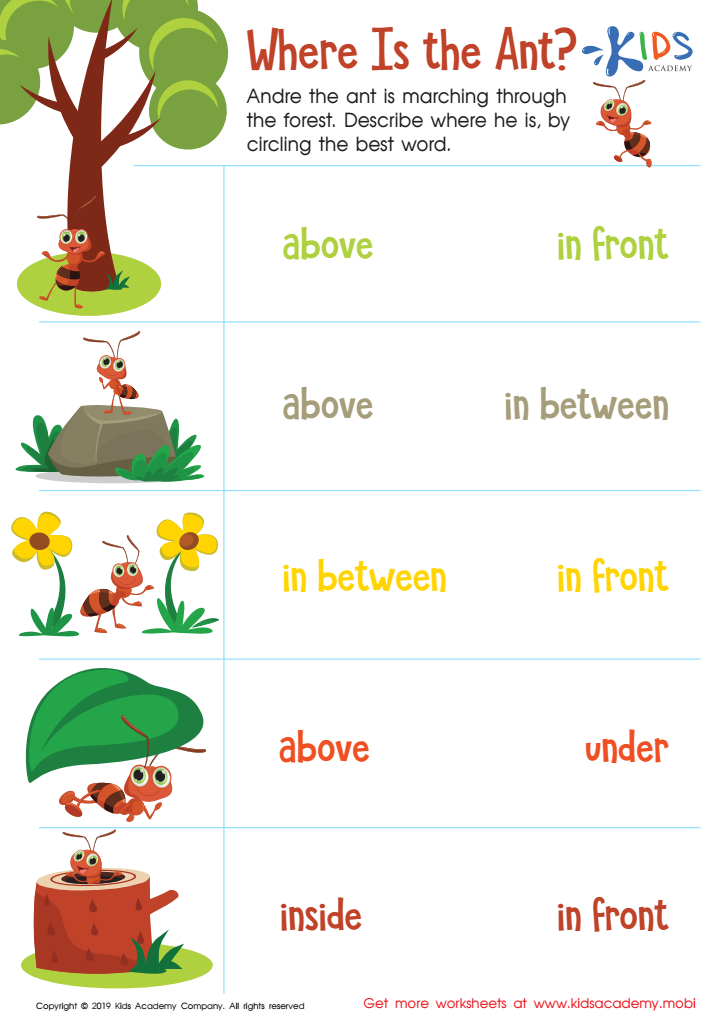

Where Is the Ant? Worksheet
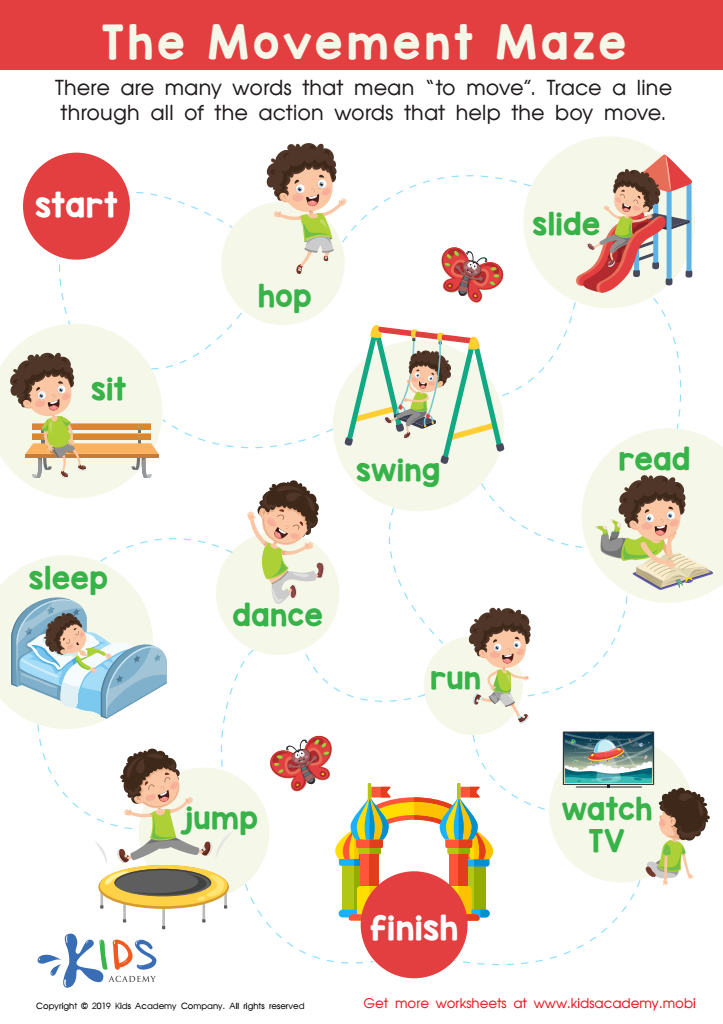

The Movement Maze Worksheet
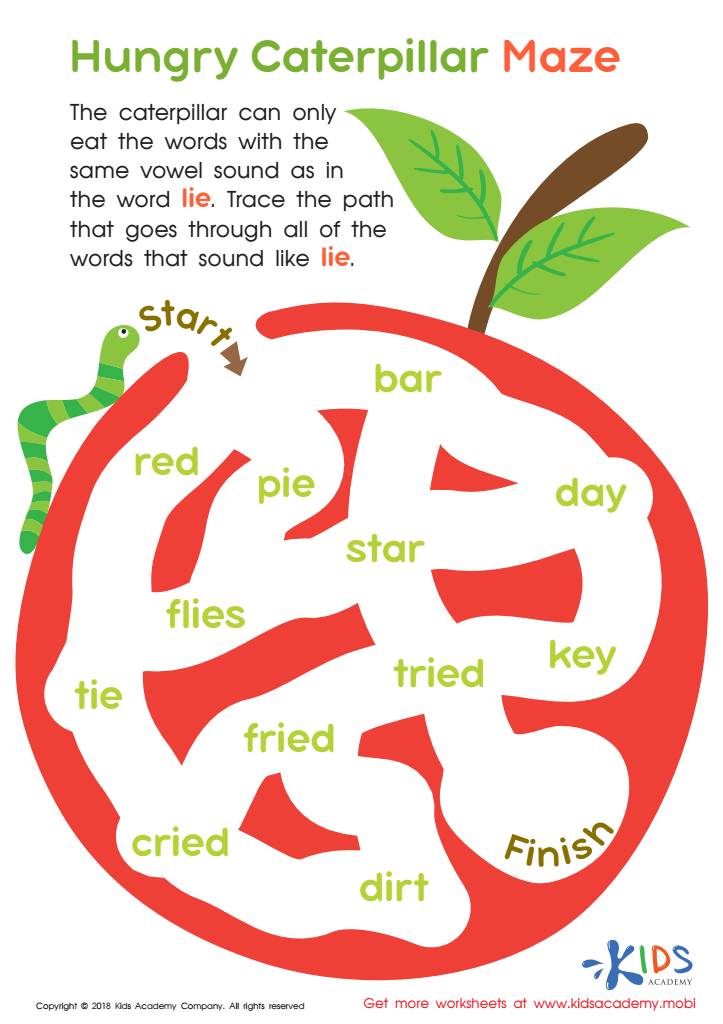

Hungry Caterpillar Maze Worksheet
Problem-solving skills and building vocabulary from ages 3 to 6 are crucial components of early childhood development that garner significant importance for both parents and teachers. During these formative years, children's brains undergo rapid growth; nurturing problem-solving abilities empowers them to navigate social interactions, manage emotions, and experiment with different solutions to everyday challenges. When children can identify and resolve problems on their own, they build confidence and resilience, laying the foundation for academic and life success.
Simultaneously, developing a rich vocabulary enhances children's ability to communicate their thoughts, feelings, and understand the world around them. A robust vocabulary supports better reading comprehension, essential for academic success later on. Research shows that children with a strong vocabulary find it easier to understand new concepts, follow instructions, and learn to express themselves effectively, which is pivotal in their cognitive and social development.
Parents and teachers play a key role in cultivating these skills through interactive activities, discussions, and reading. By providing a language-rich environment and engaging children in problem-solving tasks, they help foster critical thinking and effective communication. This dual focus not only enhances children's immediate learning experiences but also equips them with essential tools for lifelong learning and success.
 Assign to My Students
Assign to My Students





.jpg)








